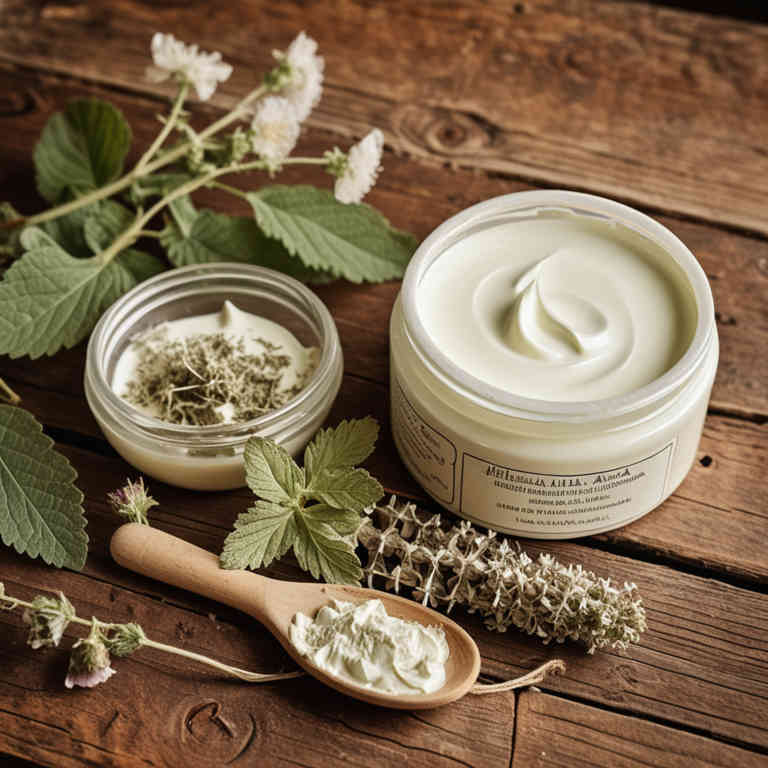Althaea officinalis cream for medicinal use

Althaea officinalis cream is a topical preparation made from the root or leaf of the marshmallow plant, known for its soothing and emollient properties.
It is commonly used in herbalism to treat skin irritations, inflammation, and minor wounds due to its high mucilage content. The cream helps to moisturize and protect the skin, making it beneficial for conditions like eczema or psoriasis. It is often applied directly to the affected area several times a day as part of a holistic skincare routine.
This preparation is valued for its gentle yet effective nature in supporting skin health and healing.
Uses
Althaea officinalis cream has been used to soothe skin irritations and promote healing for centuries.
Historically, it was valued in ancient Egypt and Greece for its calming properties, often applied to inflamed skin and respiratory conditions. Traditionally, it was used to treat coughs and sore throats, with the mucilage in the plant acting as a natural demulcent. In modern times, the cream is used topically for eczema, psoriasis, and other dermatological conditions due to its anti-inflammatory and moisturizing effects.
Its continued use highlights the enduring relevance of traditional herbal remedies in contemporary skincare.
Benefits
Althaea officinalis cream has health benefits such as soothing skin irritations, reducing inflammation, and promoting wound healing.
It is commonly used to treat conditions like eczema, psoriasis, and minor burns due to its anti-inflammatory and antimicrobial properties. The cream contains mucilage, which forms a protective barrier on the skin, helping to retain moisture and ease discomfort. It is also known to alleviate symptoms of dryness and itching, making it suitable for sensitive skin.
Overall, Althaea officinalis cream is a natural remedy that supports skin health and provides relief from various dermatological issues.
Constituents
Althaea officinalis cream active constituents include mucilage, alkaloids, flavonoids, and tannins.
Mucilage is the primary active component, known for its soothing and demulcent properties that help to relieve irritation and inflammation. Alkaloids and flavonoids contribute to the cream's anti-inflammatory and antioxidant effects. Tannins provide astringent properties that can help in reducing swelling and promoting healing.
Together, these constituents make Althaea officinalis cream beneficial for skin conditions such as eczema, psoriasis, and minor wounds.
Preparation
To make Althaea officinalis cream, start by preparing a decoction of the plant by simmering the roots in water for about 30 minutes.
Strain the liquid and allow it to cool slightly before blending it with a small amount of beeswax and a carrier oil such as coconut or almond oil. Once the mixture is smooth, transfer it to a clean container and let it cool completely to form a thick cream. This preparation can be used topically to soothe irritated skin or as a moisturizer.
It is important to store the cream in a cool, dark place to maintain its potency and freshness.
Side Effects
Althaea officinalis cream may lead to skin irritation or allergic reactions in some individuals due to its mucilage content.
It is generally considered safe for topical use, but prolonged application may cause excessive dryness or a burning sensation. The cream is often used for its soothing properties on irritated or inflamed skin. However, it should be avoided by people with known sensitivities to plants in the Malvaceae family.
Possible side effects include redness, itching, or rash, especially if the skin is already compromised.